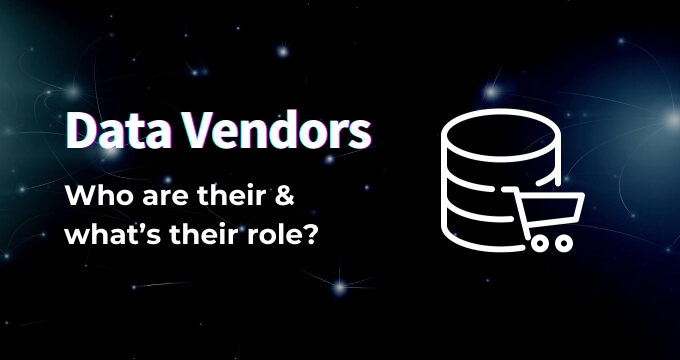A database is more than a simple file: it organises and structures information on your customers and prospects. It is crucial in the implementation of an effective marketing strategy, whether your targets are businesses or consumers. The data to be collected and stored are different whether you work in B2B or B2C.
B2B and B2C databases: definition of a customer database
A database is a structured information set stored in a computer system (CRM, Access, Excel, etc.). More specifically, a customer database centralizes all the information related to your customers. It allows you to keep a complete and clear view of your customers or prospects. Your database is an important part of your marketing actions.
Why customer database is important
In both B2B and B2C, the aim of a database is to gather quality information to increase your turnover. Developing a profitable business strategy is a key point in leveraging this data. Prospecting, building customer loyalty, launching a email marketing campaign, etc. will multiply your return on investment tenfold if you take the time to analyze your customers and collect the right data. This analysis will help you better understand the value of each of your customers and their behaviour which is essential to generate leads.
B2B and B2C: different customer data
Two data remain essential in both B2B and B2C: the email address and name of your contact. For the rest, the information to be gathered varies according to your final target: companies or individuals.
Key Data Points to Collect in a B2B Database
In a B2B database, the essential information concerns the company, but also your contact person :
- Legal-administrative data of the company - The name of the company, its company and VAT numbers, legal form, postal address, date of incorporation, etc.
- Sector of activity - You will generally find this information via the company’s NACE code. This data allows you to adapt your offers according to your customer's activity.
- Size - A company with 500 employees generally does not have the same financial means as a VSE with 3 employees.
- Turnover - Again, this will impact the amount and nature of your offers.
- Contact Data - In addition to the name and email address, you should enter the function and phone number of the contact person within the company. Your CRM is also the best place to record information about your relationship with this customer: how you came to know him or her, the dates of contacts or meetings, etc.
Beyond this information, you can fill in your B2B database with everything related to sales: products purchased, or services subscribed to by this company, order amounts, etc. B2B database marketing: Use your database to keep everything necessary to ensure smooth marketing actions.
Key Data Points to Collect in a B2C Database
A B2C database includes the contact details of your customers (name, email address, postal address, phone numbers, date of birth). This is basic information. Your database should also include everything related to purchases: number of orders, average basket size, frequency of purchase, recurrent orders, etc. For further segmentation, you could add information about consumer data like income, family situation, profession, interests, etc.
In all cases, only collect the relevant data for your marketing strategy. If you store too much data, you risk being drowned in information.
Compliance in B2B and B2C Databases
In both B2B and B2C sectors, compliance with laws like the General Data Protection Regulation (GDPR) and similar data protection legislations is crucial. These regulations set the framework for how businesses should handle personal data, emphasizing the need for consent, data security, and the protection of individual privacy rights. While GDPR is a key focus in the European Union, globally, businesses must also be aware of and comply with local data protection laws, which may have their own unique requirements.
Adhering to these regulations is not just about avoiding significant fines and legal challenges; it's also about building trust with customers and partners. Compliance ensures that data is collected, processed, and stored responsibly, reflecting a business’s commitment to ethical practices. Whether dealing with individual consumers or business contacts, maintaining rigorous standards in data management is essential in today's data-driven world. Failure to comply can lead to not only legal repercussions but also damage to a company's reputation.
Acquiring Data for B2B and B2C Databases
Collecting data for B2B and B2C databases can be a challenging task, often requiring the gathering of information from multiple sources. While businesses can collect data independently, working with a professional Data Provider is often the most efficient and reliable method. These providers specialize in sourcing, centralizing, and standardizing data from various channels, ensuring quality and compliance with data protection laws.
If you still prefer to find data by yourself, here are some common data sources you can explore for building your B2B and B2C databases:
- Directories: Directories are a key resource for data collection. Use consumer directories like the White Pages for B2C data, offering individual contact information. For B2B data, business directories like the Yellow Pages provide company details and contacts. These sources are great for starting a comprehensive database, but always remember to respect privacy laws.
- Websites and Online Portals: Company websites and industry-specific portals are great for B2B data, offering insights into business operations and key personnel. Online marketplaces can also be a useful source.
- Social Networks: LinkedIn is valuable for B2B data, offering professional profiles and networking opportunities. For B2C, networks like Facebook and Instagram can provide demographic and interest-based data.
- Public Records and Government Databases: These are particularly valuable for B2B data, offering legal and financial information about companies.
- Trade Shows and Events: Accessing databases from industry events and trade shows can yield up-to-date B2B data.
- Surveys and Customer Feedback: Direct feedback from customers or prospects can provide tailored B2B and B2C data, specific to your business needs.





Comments